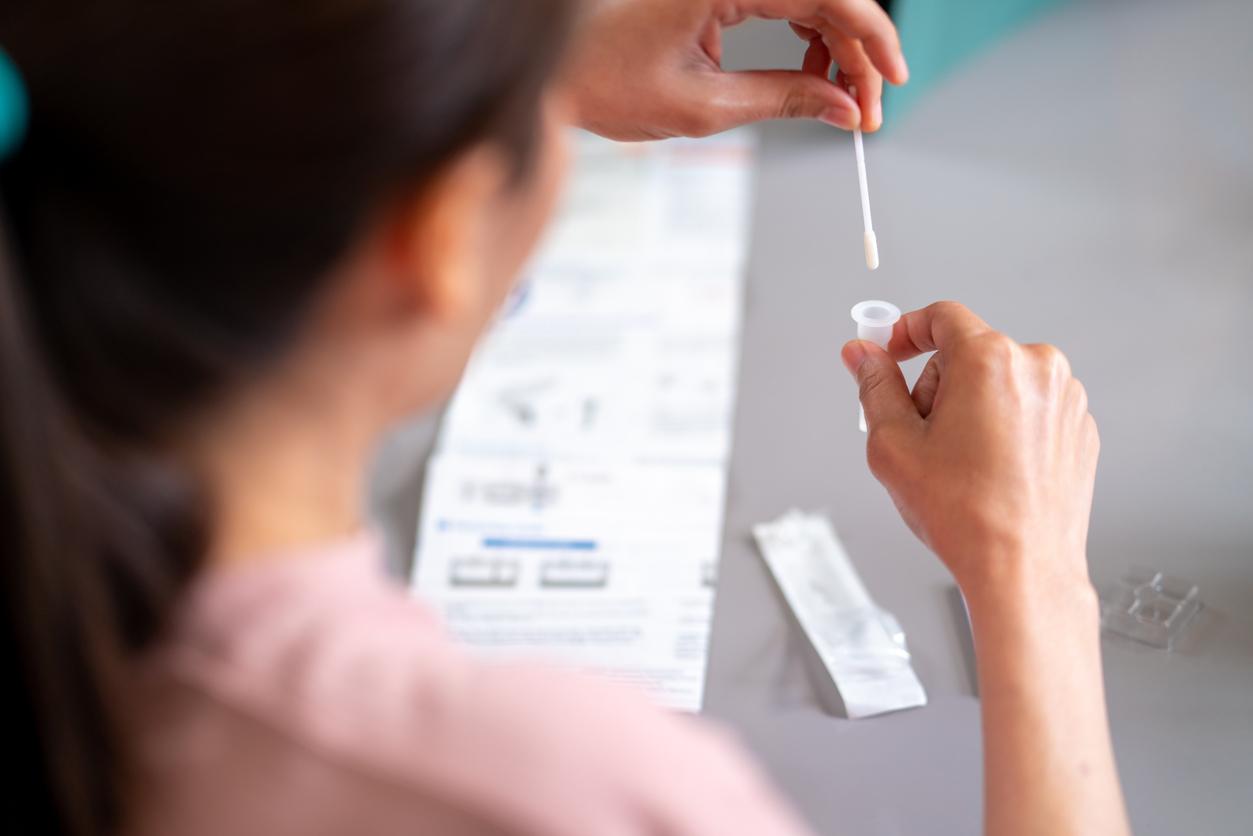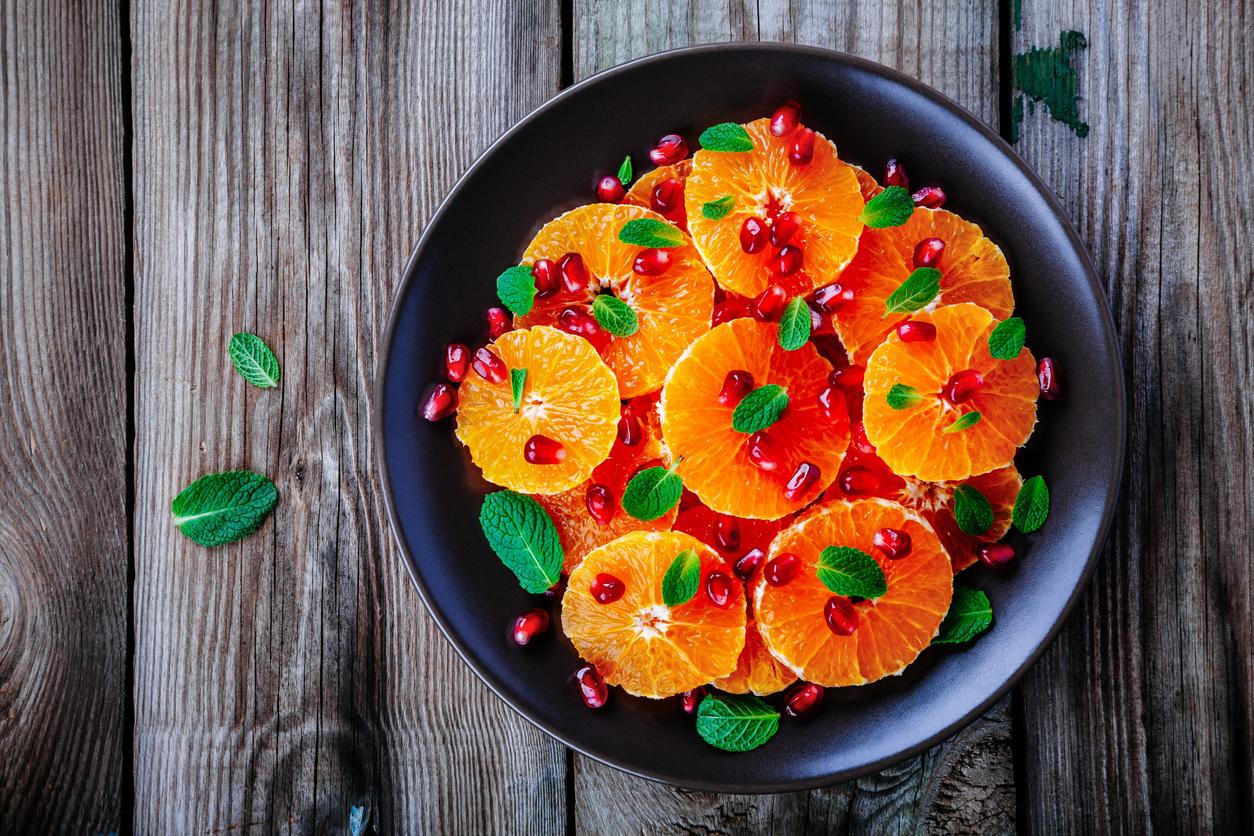We are officially in winter since December 21 and therefore more vulnerable to external aggressions. Here’s how to boost your immune system and escape seasonal viruses.
In 2017, researchers from the University of Washington (United States) demonstrated that chronic sleep deprivation reduced immune defenses. A finding they made by observing the sleep cycles of 11 pairs of identical twins, including the mean difference in sleep duration was 64.4 minutes. “The results show that the immune system works best when it gets enough sleep. In the context of seasonal epidemics, seven or more hours of sleep are thus recommended to obtain optimal health “, explained Dr Nathaniel Fletcher Watson, co-director of the Sleep Medicine Center at Harborview. To help you sleep, avoid strenuous physical activity in the evening and avoid consuming energy drinks or coffee. Take a bath to relax, dine light and focus on reading over screens.
Best known for its role in calcium absorption and bone growth, vitamin D also increases the activity and mobility of T lymphocytes, key cells of the immune system. American scientists demonstrated in 2016 that low levels of blue light produced by the sun increased the mobility of these cells. And precisely, “T lymphocytes need to move around the body to reach the sites of infections and orchestrate the immune response, the researchers note. This study shows that the light directly activates key cells of the immune system by increasing their motility “.
Note that vitamins A, C and E also play a role in strengthening the immune system and the severity of colds. Vitamins A and E are found in carrots, sweet potato, pumpkin, organ meats, spinach or cabbage.

The immune system is a natural defense mechanism, which protects us from external aggressions and evolves according to its contact with microbes and environmental substances foreign to the body. Each year, winter temperatures, lack of light and humidity affect our body and weaken this defense system, which makes us less resistant to the viruses of the moment (flu, colds, gastroenteritis, angina …).
A cure of probiotics
Almost 60% of our immune cells reside in our gut. This incredible ecosystem is made up of the intestinal immune system (which ensures the tolerance of food and defends the organism by attacking pathogenic germs), the intestinal microbiota (also called the intestinal flora, it is home to 100,000 billion natural bacteria, including the most are beneficial for the body) as well as the intestinal mucosa which acts as a “filter” by preventing unwanted microorganisms from entering the body.
Take a course of probiotics ( useful microorganisms of the intestinal flora) is therefore ideal for strengthening its immune defenses. Many foods such as yogurts, fermented dairy products, fermented cheese (camembert, cantal, gruyère, munster, roquefort …), or even pickles, artichokes, bananas, Jerusalem artichokes, onions, shallots and garlic are naturally endowed with it. .
Serenity
It is no longer a secret that stress and anxiety affect the body considerably. When they “bathe” too much in cortisol (the stress hormone) the cells of the immune system weaken. Several studies have shown that a high and prolonged rate of stress weakens the healthy functioning of our immune system and therefore promotes the development of diseases, whether mild such as a cold, or serious such as cancer, depression or heart attack. . To reinforce it, nothing like serenity. Yoga, pilates, sophrology, relaxation, meditation, reading, gardening, sport … all means are good to tame the cogs of the mind and find peace.
The quality of sleep
In 2017, researchers from the University of Washington (United States) demonstrated that chronic sleep deprivation reduced immune defenses. A finding they made by observing the sleep cycles of 11 pairs of identical twins, including the mean difference in sleep duration was 64.4 minutes. “The results show that the immune system works best when it gets enough sleep. In the context of seasonal epidemics, seven or more hours of sleep are therefore recommended for optimal health, “explained Dr Nathaniel Fletcher Watson, co-director of the Sleep Medicine Center at Harborview. To help you sleep, avoid strenuous physical activity in the evening and avoid consuming energy drinks or coffee. Take a bath to relax, dine light and focus on reading over screens.
Vitamin D
Best known for its role in calcium absorption and bone growth, vitamin D also increases the activity and mobility of T lymphocytes, key cells of the immune system. American scientists demonstrated in 2016 that low levels of blue light produced by the sun increased the mobility of these cells. And precisely, “T lymphocytes need to move around the body to reach the sites of infections and orchestrate the immune response, the researchers note. This study shows that the light directly activates key cells of the immune system by increasing their motility “.
Note that vitamins A, C and E also play a role in strengthening the immune system and the severity of colds. Vitamins A and E are found in carrots, sweet potato, pumpkin, organ meats, spinach or cabbage.
Magnesium, zinc, iron
the magnesium stimulates the production of white blood cells and is recommended when feeling tired, weak or stressed. It is naturally found in sardines in oil, seafood, snails, coffee, dark chocolate, cashews, almonds, wholemeal breads and rice or even tofu.
Deficiencies in iron should be taken very seriously since it plays an important role in the body. When the body lacks it, it is more vulnerable to pathogens. Iron indeed transports oxygen in the body, participates in the formation of red blood cells as well as the regeneration of lymphocytes, these key cells of the immune system which we mentioned above. Animal iron found in red meat (which should be consumed in moderation), blood sausage, fish, seafood or even offal is much better absorbed by the body than vegetable iron.
the zinc is an important mineral in strengthening the immune system since it contributes to the proper functioning of the thymus, the organ responsible for the production of white blood cells and antibodies. It is found in eggs, seafood, white and red meats, fish or even shellfish.

.
















